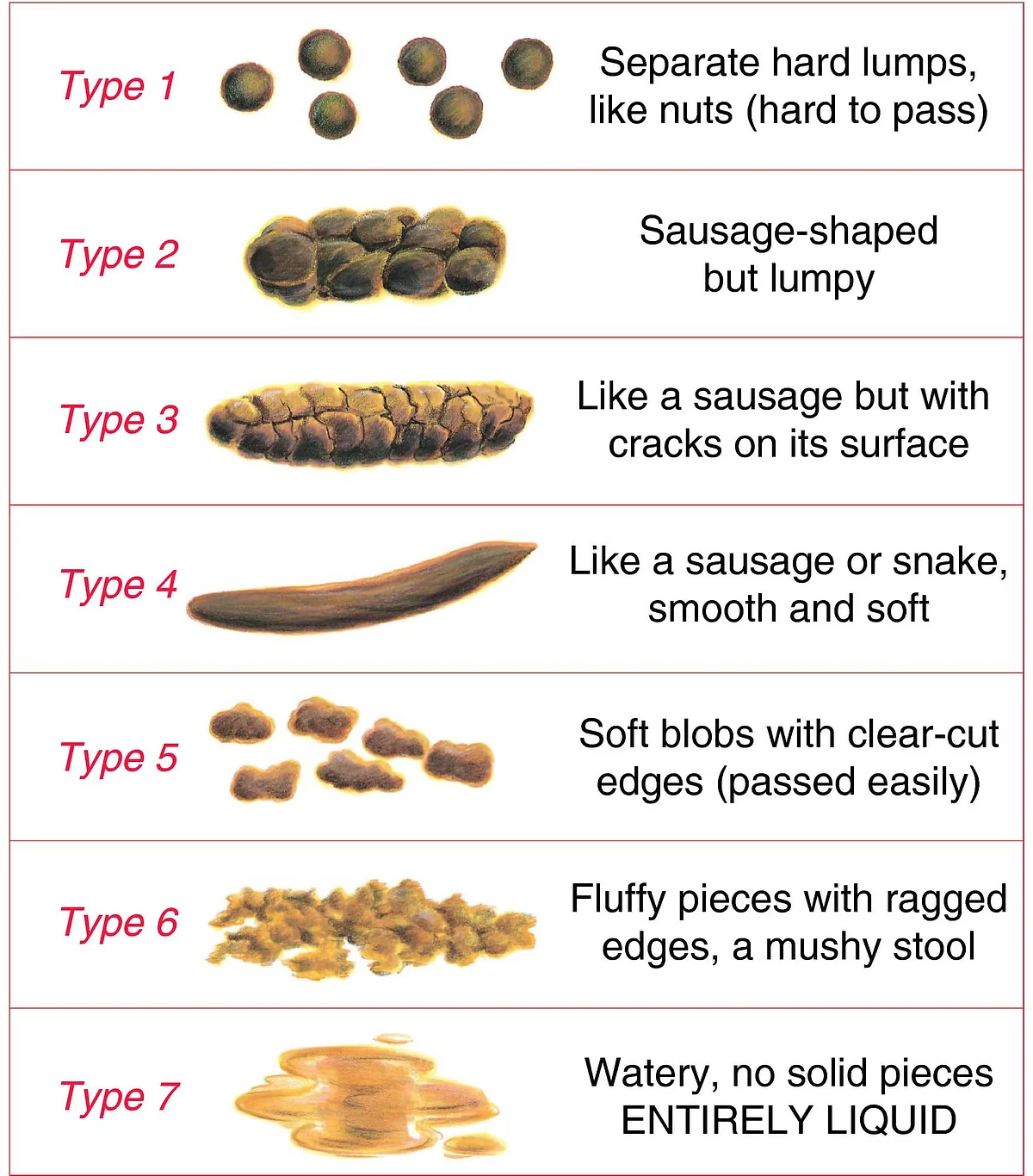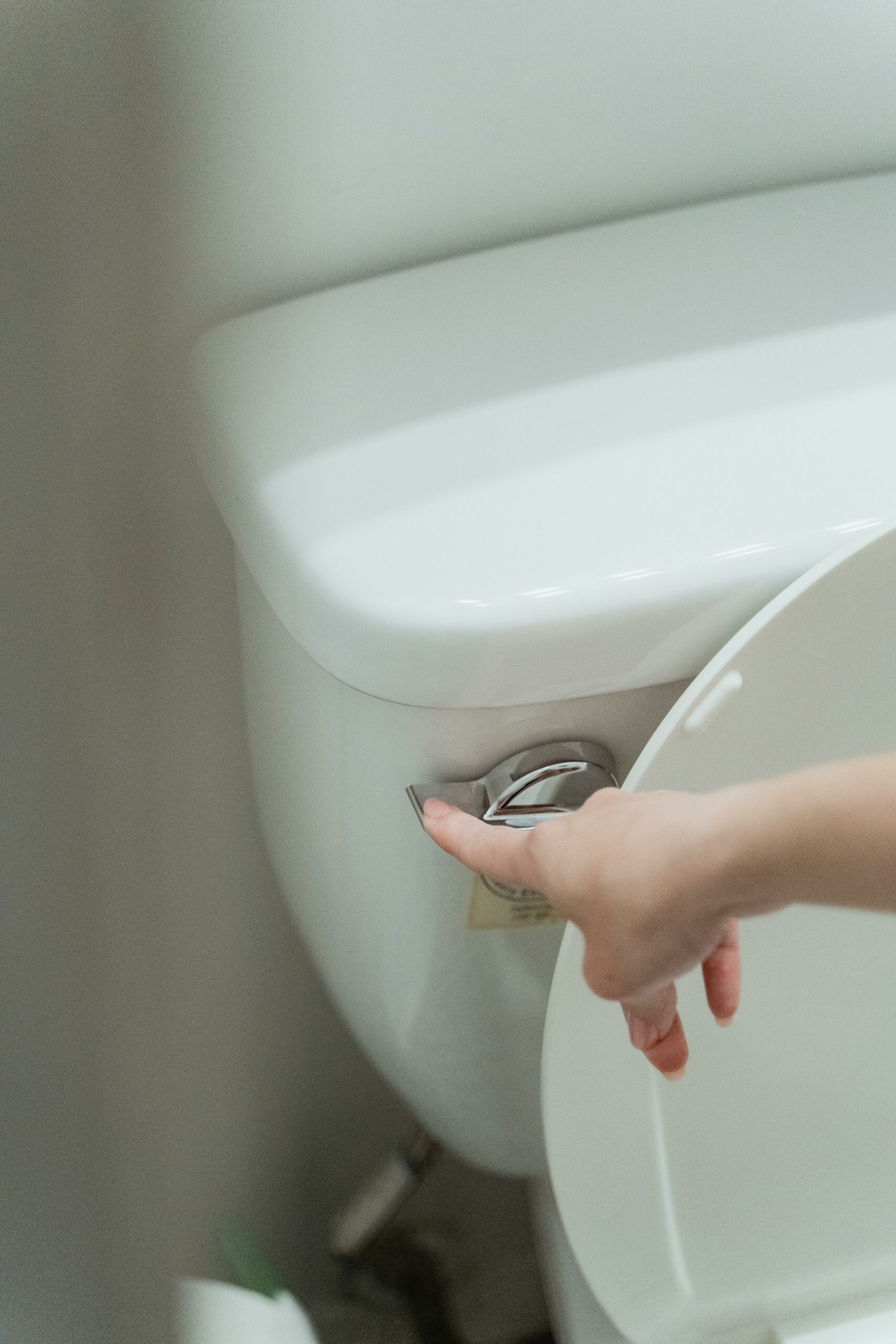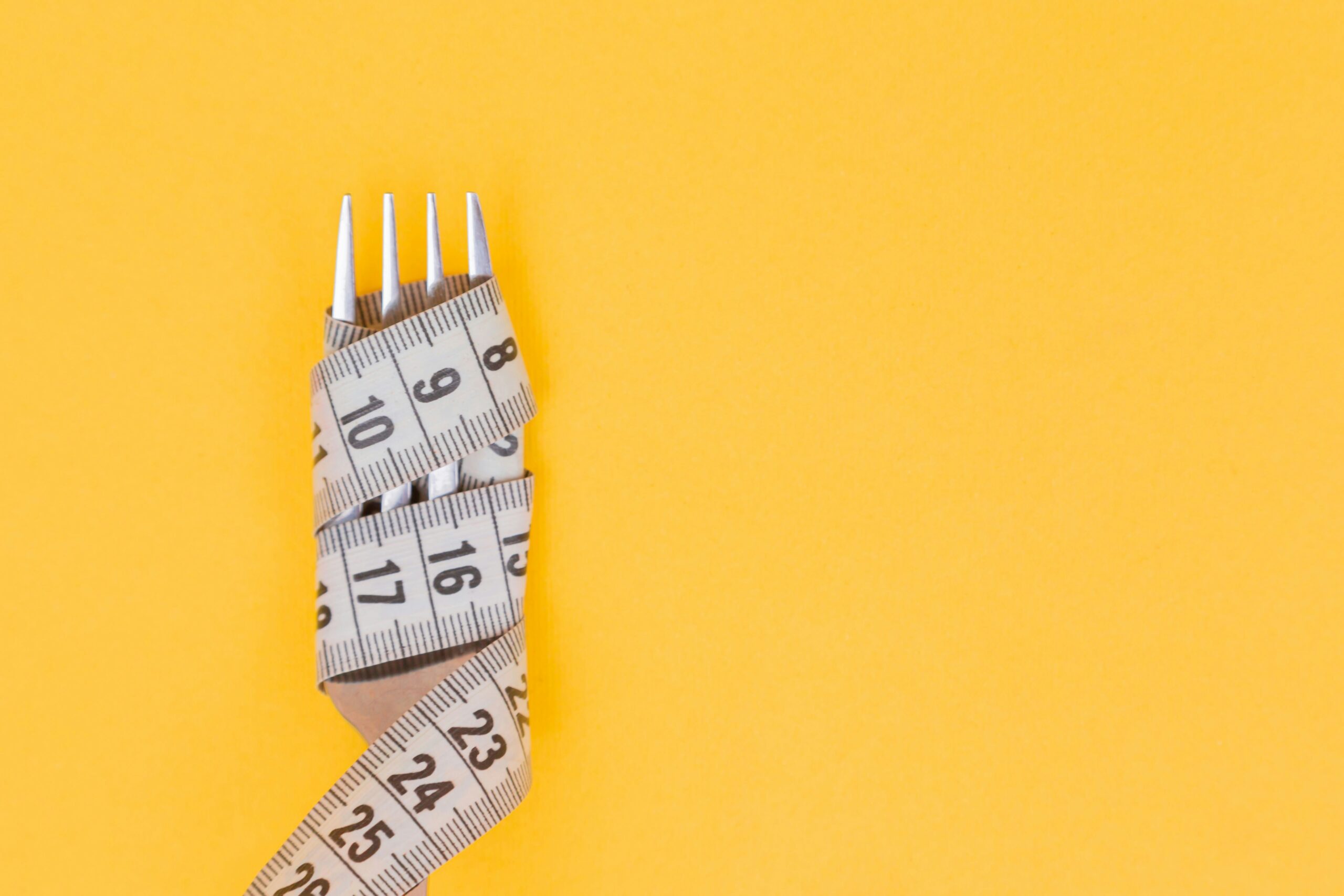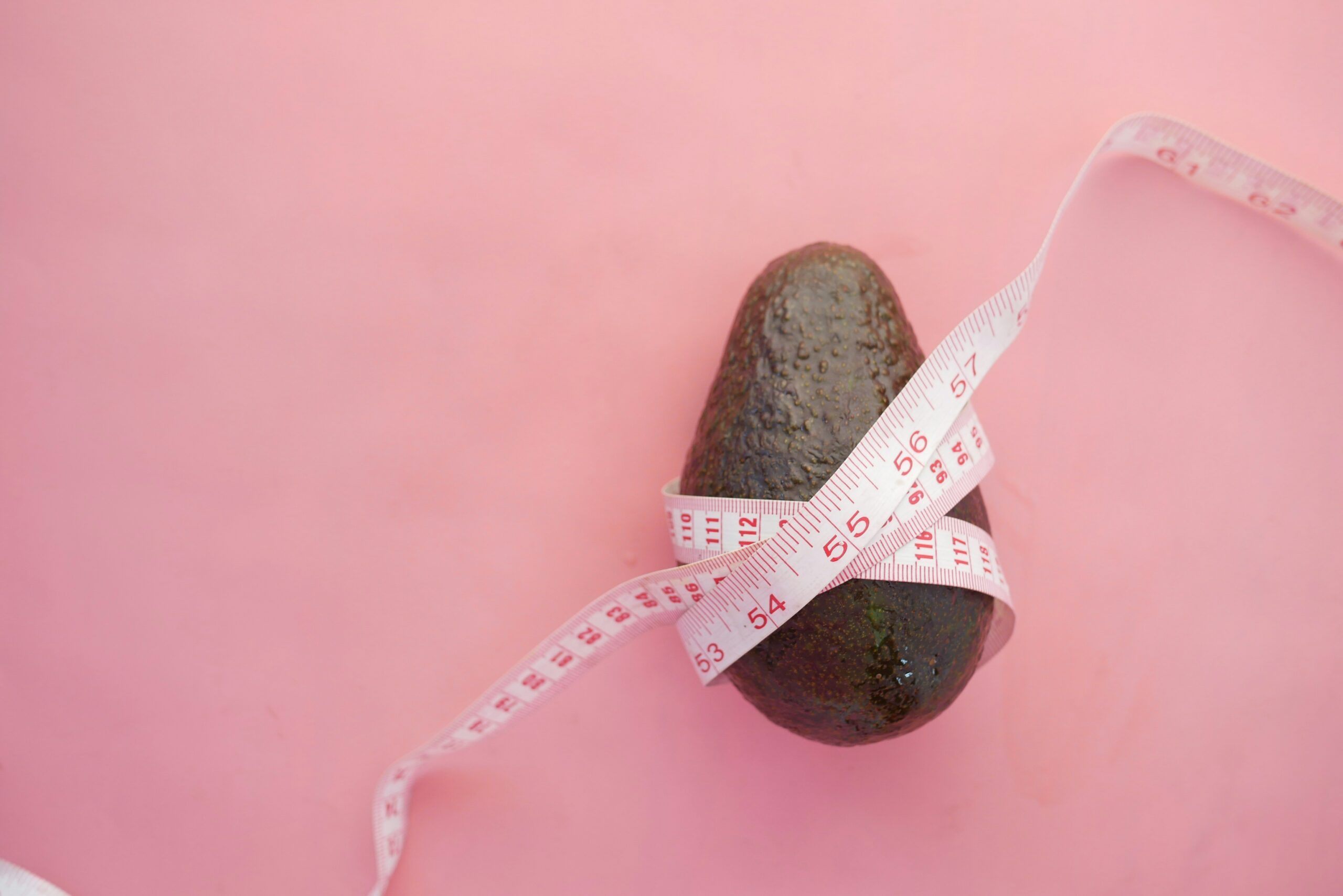According to the National Institute of Health, 16% of all adults (33% of those over 60) experience constipation. That’s about 1 in 4 adults, making it a pretty common condition. In terms of what causes constipation, the reason why you are experiencing constipation is individual and could be due to a combination of issues or a single issue.
I’m going to break things down in a way that makes it easy for you to narrow down the possible reasons you might be experiencing constipation and what you can do about it.
How Often Should I Poop?
The truth is anything less than once per day of a satisfying poop is not considered normal bowel movements. Anything more than 3 times per day is too frequent, but that’s a different issue!
We will often have clients come to us and tell us their bowel movements are “normal” and when we ask further questions we find out that normal to them is going 3 times per week. They’ve become so accustomed to it that they don’t realize it’s not actually optimal elimination. Once they realize they aren’t pooping optimally we talking about what causes constipation.
What Should My Poop Look Like?
If you’re wondering what a satisfying poop even might look like, we’ll give you an idea:

Ideally your bowel movement should look like a 3 or a 4 on this chart. If it’s a type 1 or 2, it’s hard and more pebbly and you are likely not having a fully satisfying poop. If it’s a 5-7 then it’s loose and watery and you may have some other challenges going on.
Why is being Constipated a problem?
The reason why constipation is such a problem is because it can impact your quality of life or be a sign of larger issues.
Some of the more immediate and obvious reasons are that it can cause abdominal pain or be uncomfortable.
The less obvious reasons are because constipation is a symptom of potentially larger problems and can put your long term health at risk including, but not limited to, anything from hemorrhoids to colon cancer. Prevention is key in optimizing your bowel health, so don’t wait to start trying to improve your elimination if it needs it.
Doing temporary “detox” type things like juice cleanses or detox-style capsule programs don’t actually solve the underlying problem although you may experience some relief. You can see our previous articles on Detoxes and Cleanses for more information on what we think of those in general.
Keep reading to learn more about the individual causes and what you can do about it.
What Causes Constipation?
Low Fiber Diet
Fiber consists of non-digestible components of whole foods that help move things through the colon and feed our microbiome to help support stage 3 detoxification: a bowel movement. Fiber mainly comes from whole plant foods, which we want to prioritize in our diets along with healthy amounts of clean protein and healthy fat sources.
Men need 38 grams of fiber per day and women need 25 grams of fiber per day MINIMUM. The needs of children are slightly slower, but not by much.
The only way you know if you’re eating enough fiber is to take a day or two and track it. Our clients can do that in our portal app, but you can also read nutrition labels or google things like “How many grams of fiber in a fuji apple” to get an answer. Add it up for the day and you’ll know how much you’re consuming.
Not enough and not sure what to do about it? That’s why we’re here and we can help. We have a Facebook group that is a great place for asking questions like this! If you’re on our email list we will also have occasional challenges for things like this.
Dehydration
Drinking enough water is essential to elimination. Not only does dehydration impact stool quality (think about numbers 1-2 on that bristol stool chart), but it also can impact gut motility. Hydrated bodies have better peristalsis, or smooth muscle contractions that help move things through the stomach and intestines.
Poor Upper Digestion
This is an extraordinarily common one that is one of the top two things we see in our virtual clinic. If you have poor stomach acid, reduced digestive enzymes, poor bile flow or lack of bile salts, then you’re not digesting your food properly. This can impact your ability to eliminate, believe it or not. It also puts your lower digestion at risk.
When we aren’t digesting food properly “above the belly button,” as we say, then that can impact our gut microbiome down below in a way that we don’t want. Often clients will come to us thinking they have food sensitivities because of bloating and poor digestion and it’s really poor upper digestive function.
Gut Imbalance or Pathogen
That last one brings us to THIS one. Low stomach acid especially puts us at risk for pathogens in our digestive system. This can be anything from a foreign guy you picked up somewhere to throwing your “good” and “bad” bacteria out of balance causing overgrowth of opportunistic bacteria, yeast or other bugs. Ultimately, this can lead to constipation. It can also lead to diarrhea, but it depends on the person and the imbalance or pathogen if it leans one way or the other.
Food Allergies/Sensitivities
If you’re allergic or sensitive to certain foods it can cause swelling and inflammation in the GI tract ultimately leading to things like constipation (or diarrhea too). Investigating if this is a root cause can be really helpful to turning things around.
The other important reason to do figure that out is because long term damage from chronic inflammation from the constant assault of a food your immune system doesn’t like can cause major problems down the line from hindering nutrient absorption to intestinal bleeding or even fistulae. You don’t want that last one, but that’s usually an extreme case.
Medication
Always check your medication side effects as constipation can be a common unwelcome bonus to your medication. Some folks are more sensitive to medication than others. The main medications known to cause constipation are pain medications and antidepressants. Even some supplements such as Iron can cause constipation too.
Lack of Movement
Exercise is hugely beneficial for gut motility because it helps stimulate intestinal contractions. If you’re not moving regularly because you’re in the car a lot, have a sedentary job or lifestyle, it’s time to get moving.
Mast Cell Activation Syndrome (MCAS)
Although a less common reason, MCAS or histamine intolerance can cause inflammation and swelling when it impacts the digestive tract. Many resources will say that diarrhea is more common, but, anecdotally, in our office, we see constipation pretty frequently in those with an MCAS diagnosis.
Anatomical Issue
Although another less common reason for what causes constipation, some can have anatomical issues that impact gut motility or elimination due to complications which is why it’s always good to have a GI doc take a look if it continues to be unresolved.
As we mentioned before, many of these root causes of constipation have an impact on your long-term gut health. Prevention and catching these things early is really important. Also, it’s okay to normalize asking your kids how often they’re having a bowel movement and what the quality is (show them the Bristol stool chart). The earlier you start talking about this with your kids, the earlier you can catch an issue if it pops up.
Final Thoughts
Once kids get older and you stop helping them in the bathroom the harder it is to know if things are optimal. It’s always weirder to talk to them about it when you start talking to them about bathroom habits, but explain to them why you’re asking and how important it is. Instill in them the idea that it’s normal to talk about BMs and to let you know right away if they’re having issues in the bathroom that don’t resolve quickly (such as eating something spicy and having passive issues) because they may need some assistance. It keeps the lines of communication open for what causes constipation if they are experiencing it.
The same goes for you! If you’re not sure what to do and where to go from here to resolve your issues, that’s why we’re here. Set up a free discovery call with us to chat about it and don’t forget to join our free Facebook group and email list.





